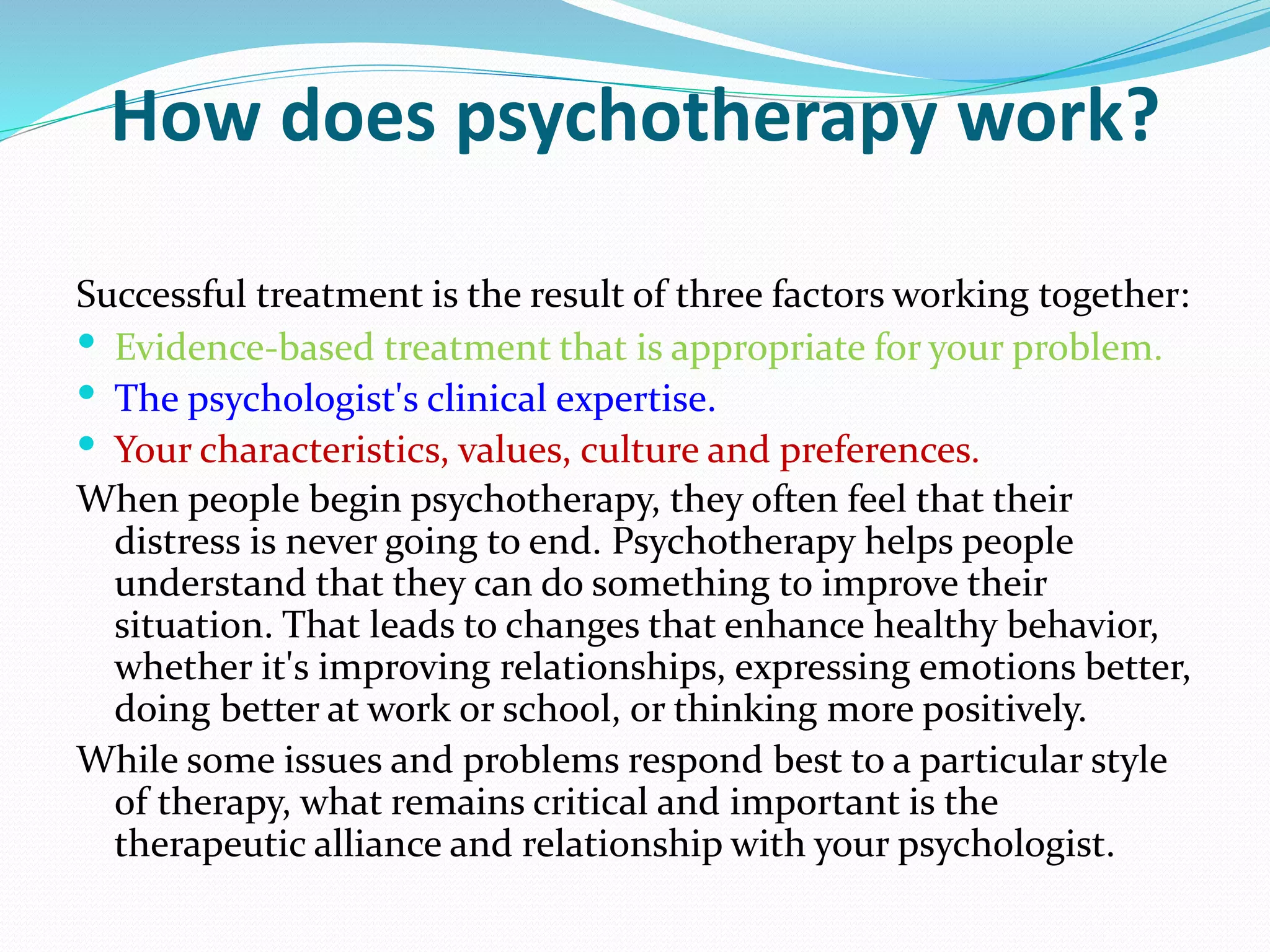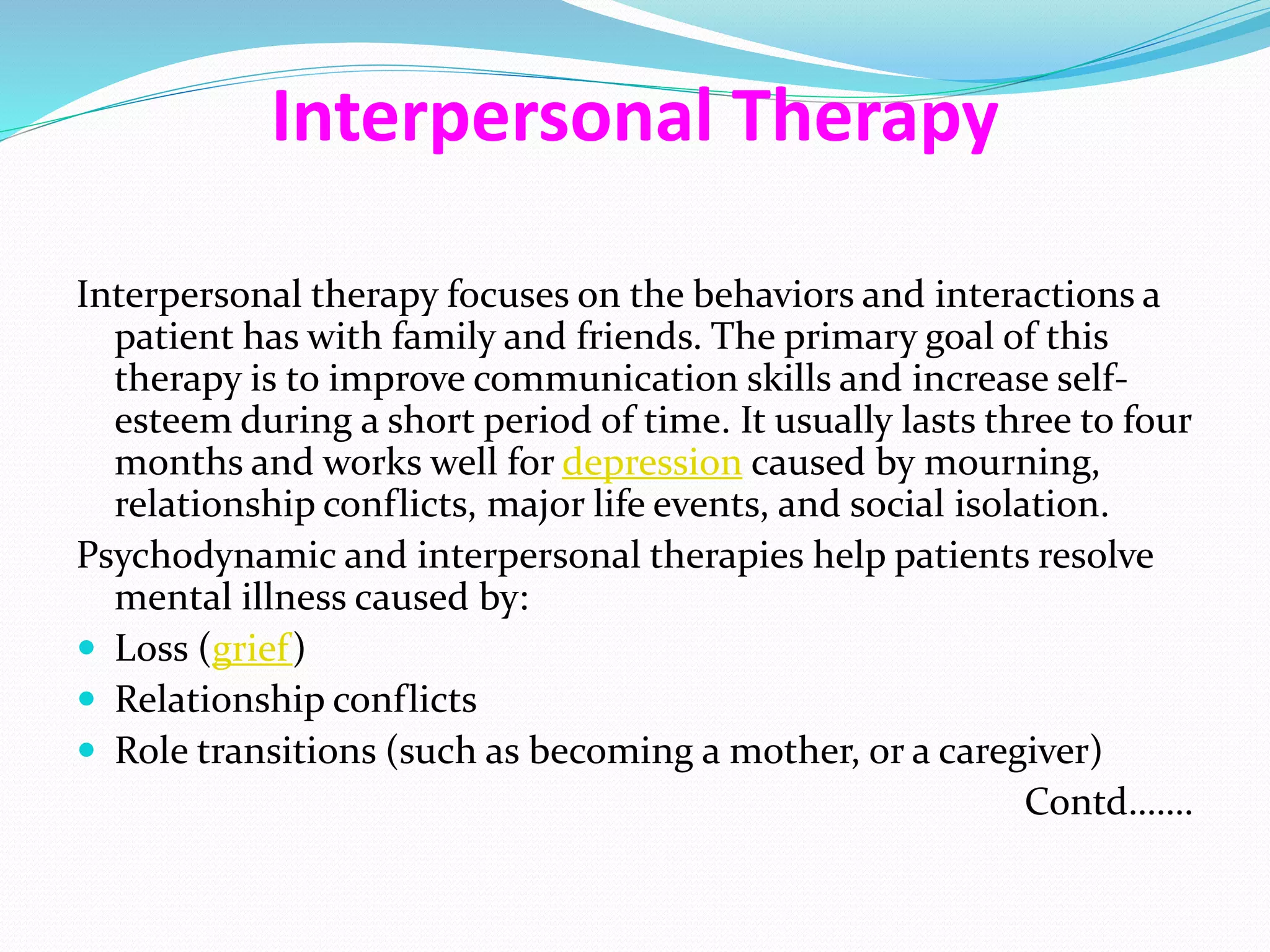Psychotherapy refers to a range of treatments involving psychological techniques rather than medical interventions. It involves a collaborative relationship between a client and therapist, where the client openly discusses issues in a supportive environment. Therapists use evidence-based procedures to help clients develop healthier habits and perspectives. There are several approaches, including cognitive-behavioral therapy and talk therapy. Psychotherapy has been shown to significantly help 75% of clients by addressing underlying causes of mental health problems.


















































